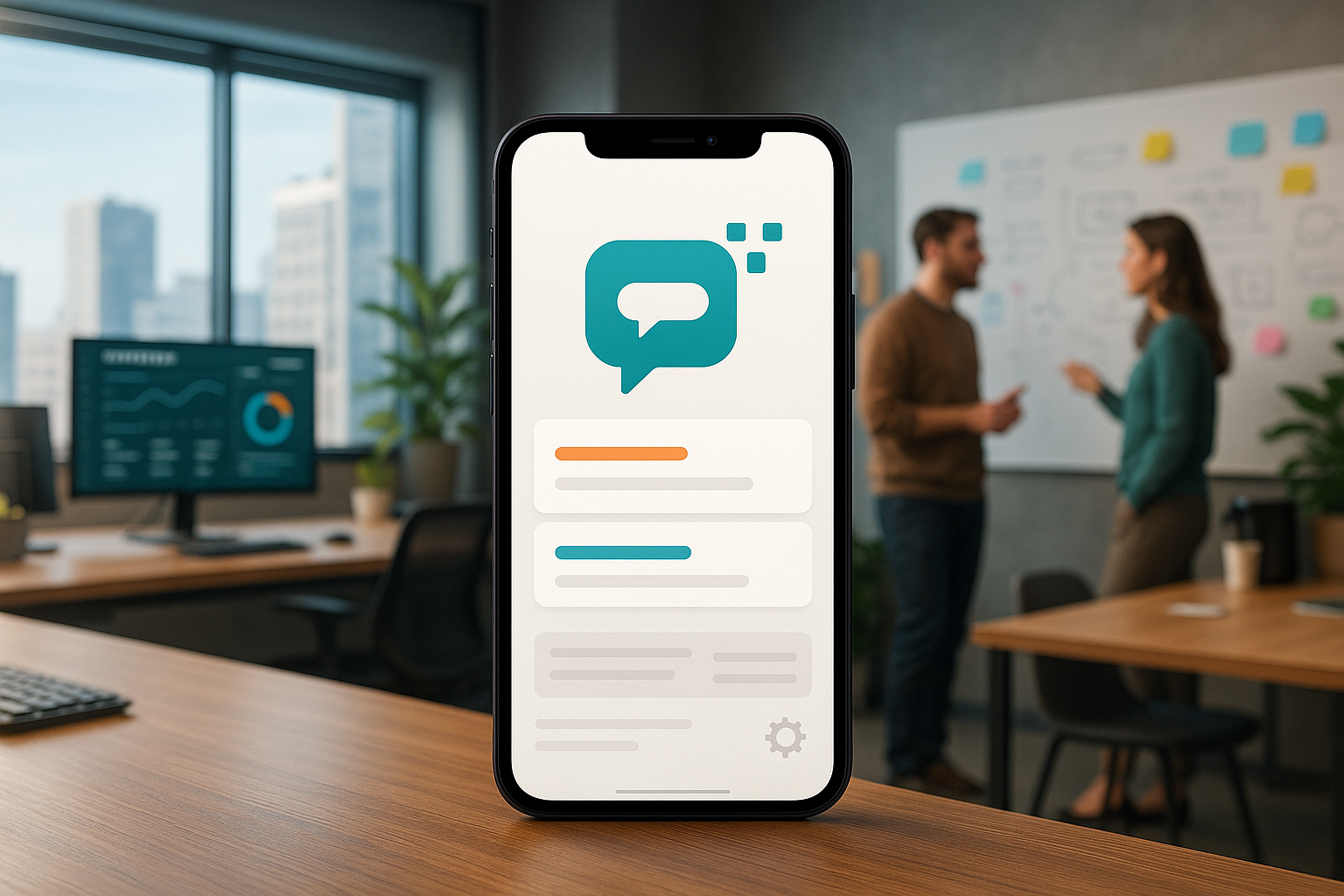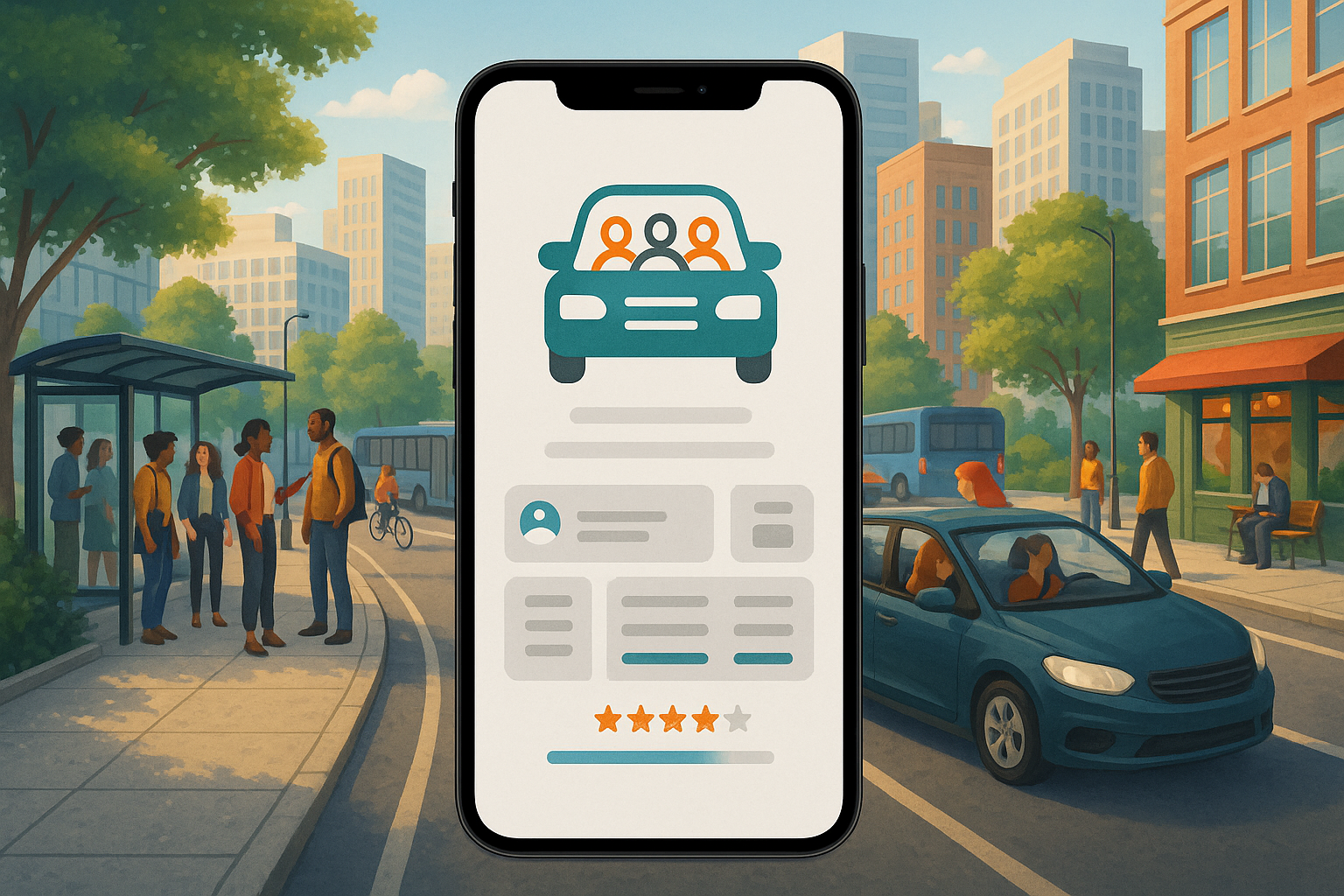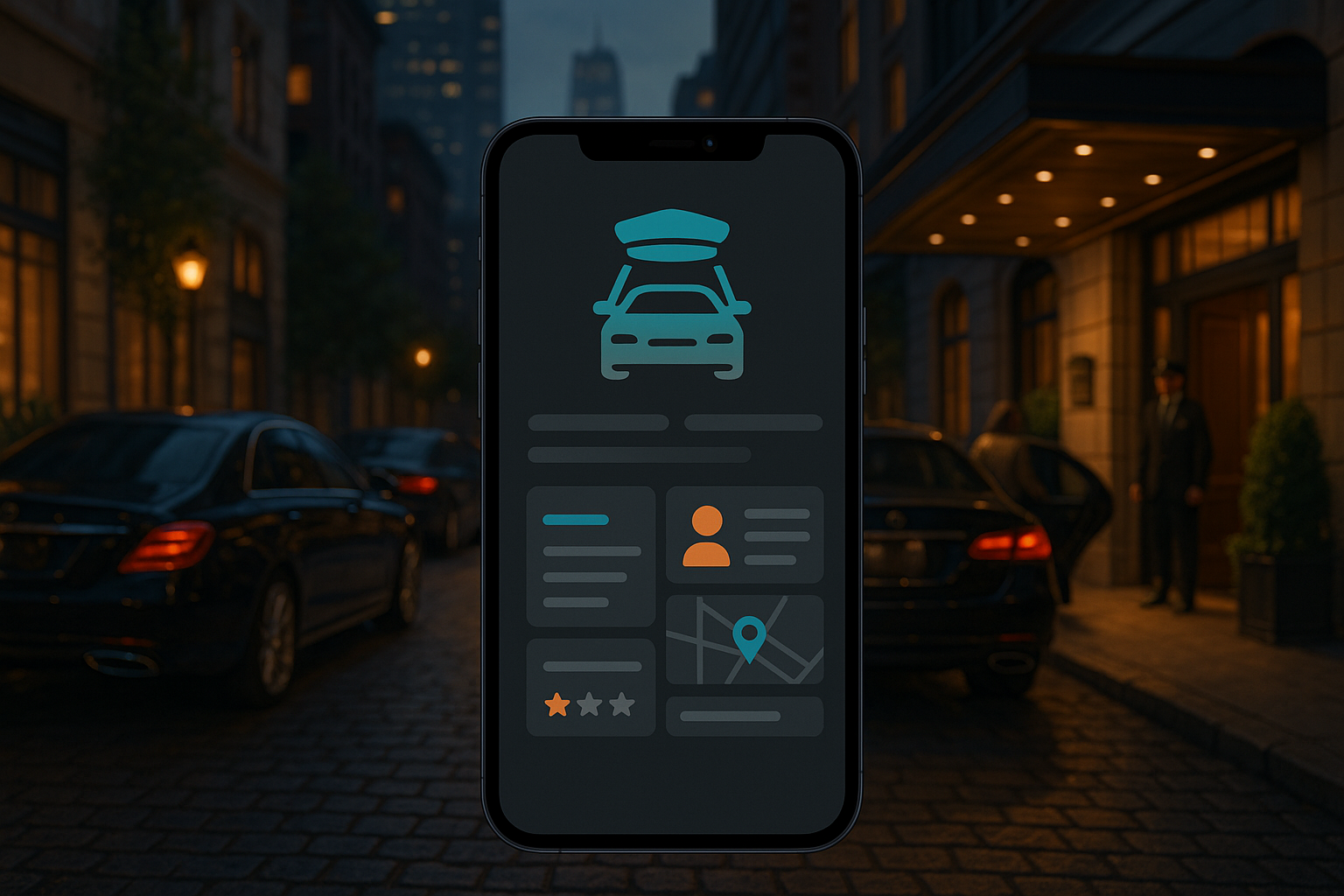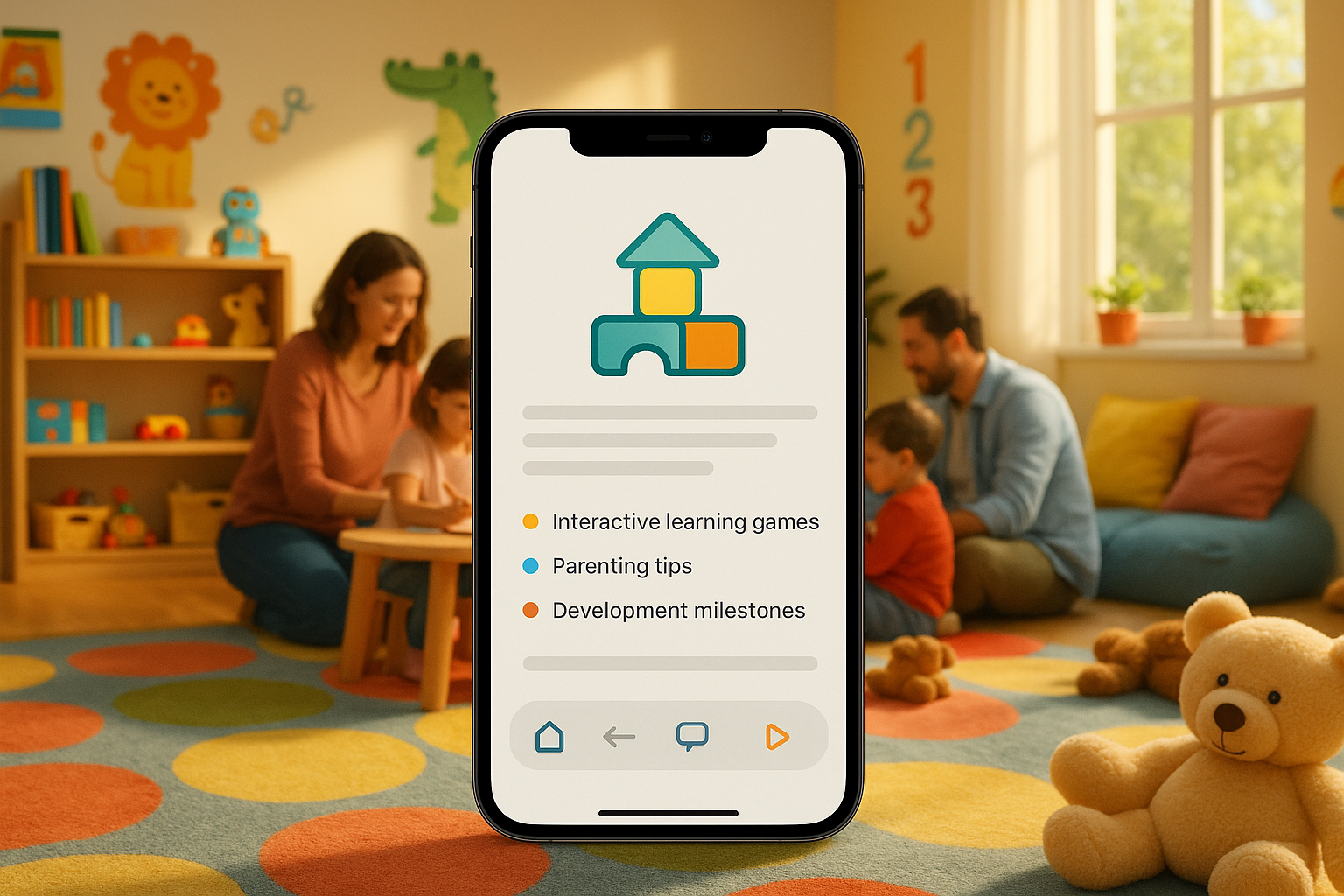Introduction
In today’s digital-first world, businesses are constantly seeking innovative ways to engage customers, streamline operations, and deliver personalized experiences at scale. Chatbot applications have emerged as a powerful solution, offering round-the-clock support and intelligent automation. However, the path to developing a successful chatbot is fraught with challenges. From navigating the complexities of natural language processing to ensuring seamless integration and maintaining user engagement, creating a chatbot in-house can quickly become a resource-intensive and overwhelming endeavor. The goal is to build a tool that not only functions correctly but also meets the high expectations of both your organization and your users.
This comprehensive guide is designed to demystify the world of chatbot app development. We will explore what a chatbot app is, delve into the significant difficulties of in-house development, differentiate between the various types of chatbots available, and provide a detailed breakdown of the associated costs. Furthermore, we will introduce you to top-tier development companies that can bring your vision to life.
As a top-rated US AI-powered app development firm, we at MetaCTO specialize in turning complex technological challenges into market-ready solutions. We have over 20 years of experience launching successful projects, and our expertise lies in integrating sophisticated AI, like custom chatbots, into mobile applications. We understand the intricacies of this process, from initial strategy to launch and beyond, and we are here to help you navigate this journey successfully.
What is a Chatbot App?
At its core, a chatbot is a software application designed to simulate human conversation through text or voice commands. It functions as an interactive agent that users can communicate with via a chat interface. The primary purpose of a chatbot is to automate tasks, answer questions, and provide information without the need for direct human intervention. This can range from simple, routine inquiries to complex, multi-step processes.
Chatbots can serve a multitude of functions across various industries. For instance, in e-commerce, they can act as personal shopping assistants, helping users track orders and providing product updates. In customer service, they handle frequently asked questions, reducing the workload on human employees and allowing them to focus on more intricate tasks. In healthcare, they can streamline processes like patient registration and appointment booking. When powered by advanced artificial intelligence, these bots can function as genuine virtual assistants, capable of understanding context, handling complex issues, and even responding in multiple languages.
A “chatbot app” can refer to two things: a standalone application whose primary function is the chatbot interface, or, more commonly, a chatbot feature integrated within a larger mobile or web application. This integration allows businesses to provide instant, contextual support directly within their existing platform, enhancing the user experience by offering help precisely when and where it’s needed. The goal is to create a seamless journey where users can get their needs met—whether it’s finding general information or tracking an order—efficiently and intuitively.
Reasons It Is Difficult to Develop a Chatbot App In-House
While the concept of a chatbot may seem straightforward, the reality of building a robust, intelligent, and reliable one is a significant technical undertaking. Many organizations underestimate the complexity involved, leading to projects that fail to meet user expectations or deliver a return on investment. Here are the primary challenges that make in-house chatbot development so difficult.
Conversational Complexity and Context Management
One of the most profound challenges is that humans do not interact in a linear, predefined order. Conversations are fluid, unpredictable, and context-dependent. A successful chatbot must be able to navigate this complexity.
- Maintaining Memory: It is challenging for companies to build, develop, and maintain the memory of a bot. This memory is crucial for offering personalized responses that recall previous interactions and user preferences.
- Context Across Sessions: Carrying context across different sessions or even different platforms presents a major hurdle. A user might start a conversation on a website and continue it later in a mobile app. Ensuring a seamless continuity of context between these interactions is a complex problem that requires sophisticated architecture.
Personalization and Empathy
Modern users expect personalized experiences. A generic, one-size-fits-all chatbot is no longer sufficient.
- Adapting to Individuality: Creating a chatbot system that can accurately understand and adapt to individual user characteristics is a formidable challenge. This includes making the bot capable of adjusting its responses to suit the unique personality and communication style of each user.
- The Empathy Gap: A machine, by its nature, cannot render the same empathy that a human can. While AI can be trained to recognize and respond to emotional cues, bridging this empathy gap to create a genuinely supportive and understanding interaction remains a significant challenge.
Data Viability and Brand Identity
A chatbot is only as good as the data it’s trained on and the identity it projects.
- Meaningful Data: A critical challenge is ensuring the viability of the data used to train the chatbot. The bot must be enriched with meaningful, accurate, and relevant information to be useful.
- Brand Representation: The chatbot becomes a direct representative of your brand. Ensuring it is equipped to deliver the brand identity, voice, and unique selling proposition (USP) of the organization to its target audience is essential for maintaining a consistent brand experience.
Technical Integration with Third-Party Systems
Most chatbots do not operate in a vacuum. They need to connect with other systems to perform useful tasks, such as accessing customer data, processing orders, or checking inventory.
- API and Service Integration: Seamlessly integrating a chatbot with a diverse array of third-party APIs and services is a major challenge.
- System Diversity: Each external service often has its own unique data structures, authentication methods, and error-handling processes. Harmonizing these disparate systems so that information and actions flow smoothly without compromising the user experience is a complex task for any development team.
Rigorous Testing and Continuous Maintenance
The development lifecycle of a chatbot doesn’t end at launch. It requires constant attention.
- The Complexity of Testing: Chatbot testing is a primary issue where most of the development complexity lies. Manual testing of every possible conversational logic path is not only incredibly time-consuming but can also be only partially accurate.
- Evolving Technology: Chatbots are continuously evolving due to frequent upgrades in the underlying natural language models. This makes it vital, and perpetually challenging, to test and run the chatbot to ensure its accuracy and performance remain high over time.
Security and Regulatory Compliance
Handling user data comes with immense responsibility.
- Handling Sensitive Information: Ensuring the secure handling of sensitive user information and maintaining compliance with privacy regulations like GDPR or HIPAA poses a significant challenge.
- Third-Party Risks: The challenge of data security is further heightened when integrating with third-party services that may have different data protection standards, potentially creating vulnerabilities.
The Challenge of Mobile App Integration
Integrating a chatbot into an existing mobile application introduces its own unique set of technical hurdles. This is not a simple plug-and-play process; it requires deep technical expertise.
- Source Code Manipulation: Integrating a chatbot effectively involves working directly with the app’s source code.
- API and SDK Expertise: The integration process requires proficiency in working with different APIs and Software Development Kits (SDKs) to connect the chatbot’s “brain” to the app’s user interface.
- Skilled Development Team: Without a skilled development team experienced in these specific tasks, attempting to integrate a chatbot can lead to bugs, poor performance, and a disjointed user experience.
This is precisely where partnering with an experienced agency like MetaCTO provides immense value. Our team has deep expertise in Custom Mobile App Development and handles the complexities of API and SDK integration, ensuring your chatbot works flawlessly within your app’s ecosystem. We take on the technical burden so you can focus on your business goals.
Different Types of Chatbot Apps
Not all chatbots are created equal. They fall into two primary categories, each with distinct capabilities, use cases, and underlying technologies. Understanding these differences is crucial for selecting the right approach for your business needs.
1. Rule-Based Chatbots
Rule-based chatbots, often called decision-tree bots, are the simpler of the two types. They operate based on a predefined set of rules and a scripted conversational flow, much like a flowchart.
- How They Work: Their capabilities in understanding and responding to prompts are confined to the scope of the script. They are often programmed to respond to specific keywords or guide users through conversations by having them select from a list of buttons, such as “Pricing” or “Opening Hours.”
- Strengths and Use Cases: These chatbots excel at handling basic, repetitive tasks. They are well-suited for providing general information, answering frequently asked questions (FAQs), tracking orders, and providing simple updates. They simplify the user journey for routine inquiries and reduce the workload on human employees, freeing them up for more intricate issues.
- Ideal Environment: Rule-based automation generally thrives in smaller businesses, websites, and organizations where the scope of customer interaction is limited and predictable.
- Limitations: The primary drawback of rule-based bots is their rigidity. They struggle with solving complex issues and cannot understand intent or context beyond their programming. They are not suitable for larger corporations or service offerings that go beyond simple tasks like parcel tracking, as their limited capacity cannot adequately handle nuanced customer service or e-commerce interactions.
2. AI-Powered Chatbots (Conversational AI)
AI-powered chatbots represent a significant leap forward in conversational technology. They leverage advanced technologies like machine learning (ML), natural language processing (NLP), and natural language understanding (NLU) to simulate human-like conversations.
- How They Work: Unlike their rule-based counterparts, AI bots can understand user intent, recognize synonyms, interpret nuanced language, and learn from past interactions to improve their responses over time. They function as genuine virtual assistants.
- Strengths and Use Cases: Conversational AI bots are proficient in answering a wide range of questions and can handle complex issues. With the appropriate training datasets, they have the capacity to respond in multiple languages. They are ideal for large organizations such as blue-chip companies.
- Industry Applications: Conversational AI is particularly advantageous for larger enterprises and crucial for sectors like banking or healthcare due to its heightened sophistication and ability to handle data protection requirements. For example, a healthcare organization might prefer conversational AI to streamline complex processes like patient registration, facilitate appointment booking, or even create a medical virtual assistant for initial symptom checking.
Here is a summary comparing the two types:
| Feature | Rule-Based Chatbots | AI-Powered Chatbots |
|---|---|---|
| Technology | Predefined scripts, keywords, buttons | AI, Machine Learning, NLP, NLU |
| Complexity | Simple, linear conversations | Complex, non-linear conversations |
| Capabilities | Handle basic needs (FAQs, order tracking) | Handle complex issues, function as virtual assistants |
| Flexibility | Rigid, confined to script | Learns and adapts over time |
| Language | Typically single language | Can be multilingual with training |
| Best For | Smaller businesses, routine tasks | Large enterprises, complex sectors (e.g., healthcare) |
Choosing between a rule-based and an AI-powered chatbot depends entirely on your business objectives, target audience, and budget. While a rule-based bot can be an effective and affordable solution for basic support, an AI chatbot is a necessary investment for businesses aiming to provide sophisticated, personalized, and scalable customer experiences.
Cost Estimate for Developing a Chatbot App
The cost of developing a chatbot can vary dramatically, reflecting the wide spectrum of complexity and functionality available. The investment can range from a few thousand dollars for a basic bot to hundreds of thousands for a highly advanced, custom-built AI system. In 2024, the general range spans from $10,000 for basic rule-based chatbots to over $250,000 for advanced AI-driven solutions.
Let’s break down the costs based on chatbot type, features, and other influencing factors.
Cost by Chatbot Type
The core technology of the chatbot is the primary driver of its cost.
| Chatbot Type | Estimated Cost Range | Description |
|---|---|---|
| Rule-Based Chatbots | $10,000 – $15,000 | Simple bots with predefined flows, ideal for FAQs and basic tasks. |
| AI-Powered Chatbots | $35,000 – $80,000 | Bots using NLP/ML for more dynamic, context-aware conversations. |
| Multilingual Chatbots | $20,000 – $60,000 | Requires additional training data and linguistic logic for each language. |
| Healthcare Chatbots | $50,000 – $150,000+ | Costs are higher due to compliance (HIPAA) and complex medical NLP. |
| Generative AI Chatbots | $80,000 – $250,000+ | Advanced bots using models like GPT for highly creative and custom workflows. |
Cost by Functionality and Complexity
The specific features you want your chatbot to have will significantly impact the price. A chatbot that performs more sophisticated tasks requires more development time and expertise.
- Basic Bots ($5,000 – $15,000): These chatbots handle basic functionality like automating FAQs, simple scheduling, and keyword detection.
- Advanced Bots ($35,000 – $85,000): These include more integrated features like dynamic conversation flows, voice recognition, integration with CRM or EHR systems, and a data analytics dashboard.
- Custom Bots ($80,000 – $150,000+): These are tailored solutions for specific, complex tasks such as medical symptom analysis and triage, custom business workflows, and proactive user notifications.
Factors Influencing Chatbot Development Costs
Several key factors determine the final price tag for your chatbot project.
1. Industry-Specific Requirements
A healthcare chatbot with strict HIPAA compliance needs and advanced features will naturally cost more than a basic e-commerce customer service bot.
- Healthcare: HIPAA-compliant solutions typically start at $50,000 and can exceed $100,000, especially when integrating with EHR systems. The need for advanced NLP to precisely interpret medical questions adds significant value and cost. Simpler bots for appointment scheduling might fall in the $20,000 to $40,000 range.
- E-commerce: Basic bots for FAQs and order tracking usually cost $10,000 to $20,000. Advanced versions capable of AI-driven personalization, cross-selling, and real-time inventory checks can range from $25,000 to $50,000.
- Lead Generation: Simple bots embedded in websites for lead qualification cost between $15,000 and $25,000. More customized versions with live chat escalation or multilingual support can push costs toward $30,000 to $50,000.
2. Development Approach and Technology Stack
How you build the bot matters.
- Build vs. Buy: Building a custom chatbot from scratch, especially one with sophisticated AI, is resource-intensive. Custom platforms typically start at $50,000 and can easily exceed $100,000. Off-the-shelf chatbots are cheaper upfront ($5,000 to $10,000) but offer less flexibility.
- AI and NLP Integration: Integrating AI capabilities like NLP and ML can add $10,000–$50,000+ to the cost. Training custom models significantly raises these expenses.
- Cost-Saving Strategies: Leveraging pre-trained AI models from platforms like Google’s Dialogflow, IBM Watson, or OpenAI can significantly cut costs by eliminating the need to train a model from scratch. Similarly, using open-source frameworks like Rasa or Botpress can eliminate licensing fees.
3. Ongoing Operational and Maintenance Costs
The initial development cost is not the final expense. You must budget for ongoing operations.
- Operational Expenses: These include hosting, server usage, and fees for API calls, which can add up quickly for high-traffic bots.
- Maintenance: Regular updates for improving NLP, patching security vulnerabilities, and accommodating user feedback are essential. A good rule of thumb is to allocate 15–20% of the initial project budget annually for maintenance.
- Scalability: As your user base grows, so will your costs. This includes higher-tier cloud infrastructure fees and potentially retraining AI models to handle new scenarios or languages.
- Compliance: For industries like healthcare, ongoing costs for securing sensitive data, implementing encryption, and undergoing regular audits must be factored in. Missteps in compliance can lead to penalties that far exceed the chatbot’s development cost.
Top Chatbot App Development Companies
Choosing the right development partner is arguably the most critical decision you’ll make in your chatbot journey. A skilled partner can navigate the technical complexities, align the product with your business goals, and deliver a polished final product. We’ve compiled a list of top companies based on their reputation on Clutch, a trusted platform where companies are reviewed by their actual clients based on in-depth interviews and verified project details. A strong Clutch rating indicates a company’s commitment to quality work and professional service.
1. MetaCTO
As a leading AI-powered mobile app development agency in the US with a 5-star rating on Clutch, we at MetaCTO are experts at transforming ambitious ideas into successful, market-ready applications. Our specialty lies not just in building apps from the ground up but in integrating complex technologies like custom chatbots to enhance efficiency and drive innovation.
We handle every step of the process, from initial strategy and validation to building, growing, and monetizing your app. Our AI Development services are tailored to deliver solutions that fit your unique business needs, whether that’s a sophisticated chatbot for customer engagement or an advanced machine learning model for data analysis. With over 120 successful projects launched and more than $40 million raised in fundraising support for our clients, our track record speaks for itself. We believe in getting to market quickly and efficiently, which is why we offer a Rapid MVP Development service to launch a functional product in 90 days or less.
Other Top-Rated Companies
Here are other highly-rated chatbot development companies, recognized on Clutch for their excellent work and client satisfaction.
| Company | Clutch Rating | Noteworthy For |
|---|---|---|
| ValueCoders | 5.0 | Being rated highly by its clients. |
| PixelCrayons | 4.9 | Having excellent reviews on Clutch. |
| Bytes Technolab | 4.9 | Being highly rated on Clutch. |
| Solulab | 4.9 | Being awarded top marks for its services. |
| Zethic | 4.9 | Having excellent reviews on Clutch. |
| NineHertz | 4.8 | Receiving a lot of praise on platforms like Clutch. |
| Citrusbug Technolabs | 4.7 | A top rating that shows their reputable standing. |
| Appinventiv | 4.7 | Being highly reviewed by its users on Clutch. |
| Sphinx Solutions | 4.5 | Being highly rated by users on Clutch. |
| AppSquadz | 4.5 | Being highly rated by Clutch. |
Conclusion
Embarking on chatbot app development is a strategic move that can unlock significant value for your business, but it’s a journey filled with technical and strategic hurdles. As we’ve explored, creating a successful chatbot involves much more than writing code. It requires a deep understanding of conversational design, robust context management, seamless third-party integrations, and rigorous security protocols. The decision between a simple rule-based system and a sophisticated AI-powered assistant has profound implications for both functionality and cost, with investments ranging from a modest $10,000 to over $250,000 for advanced custom solutions.
The challenges of in-house development—from managing conversational complexity to ensuring brand alignment and integrating with mobile app source code—underscore the importance of having an expert partner. An experienced development firm can mitigate risks, accelerate timelines, and ensure the final product not only works flawlessly but also meets the high expectations of your users.
Ready to build a powerful chatbot for your mobile app? Don’t navigate the complexities alone. Talk with a Chatbot expert at MetaCTO today to discuss how we can integrate a seamless, intelligent chatbot into your product and drive your business forward.






